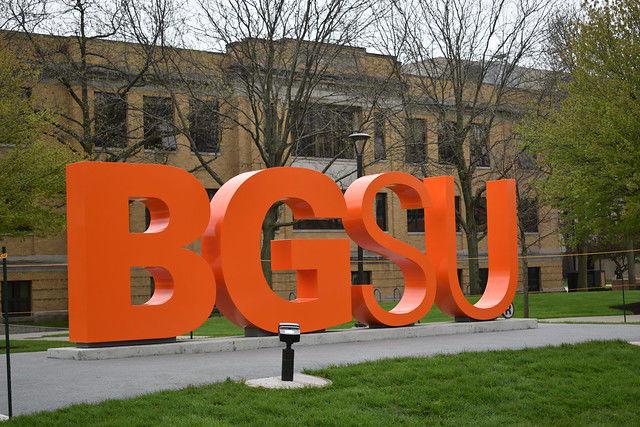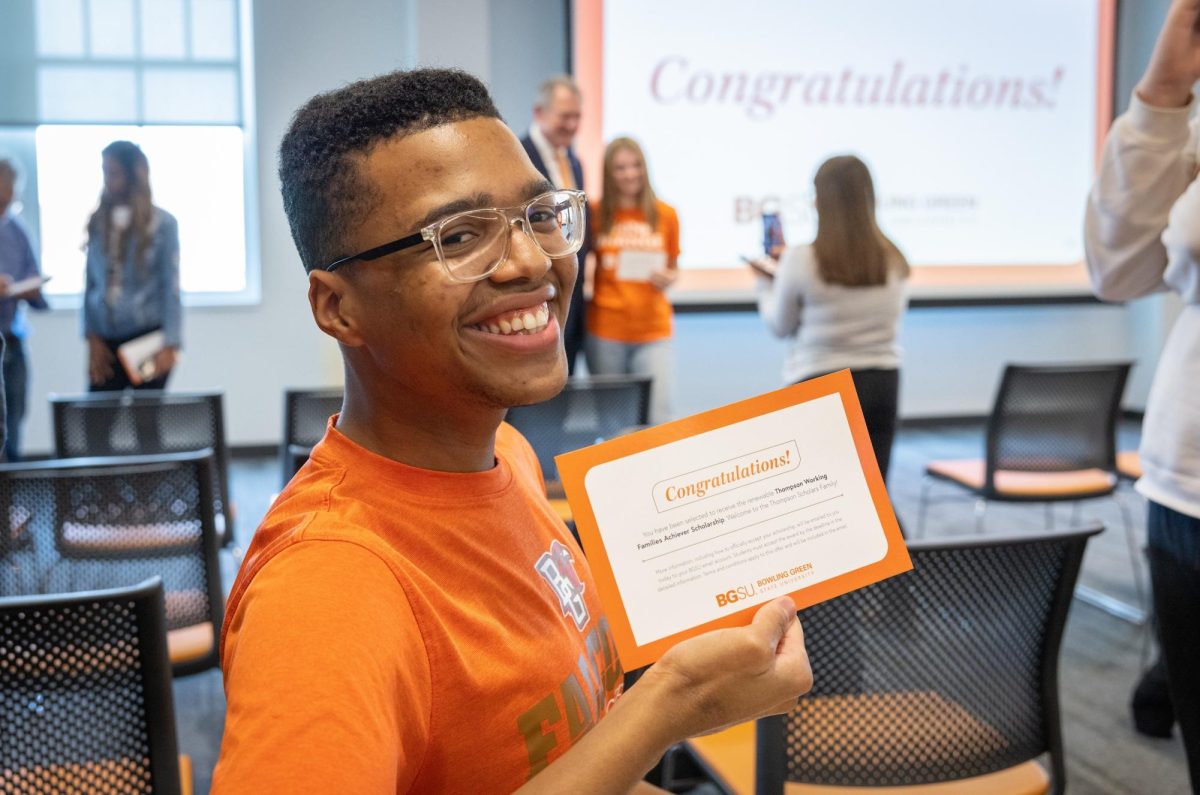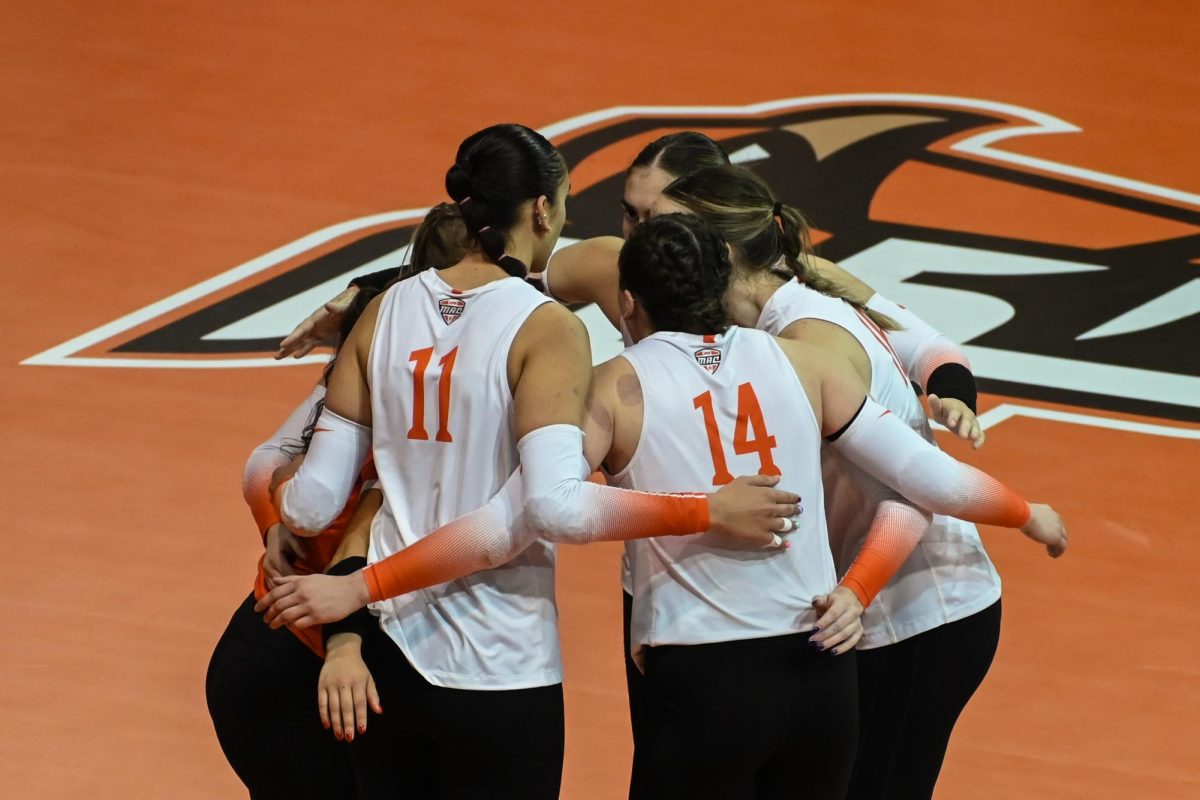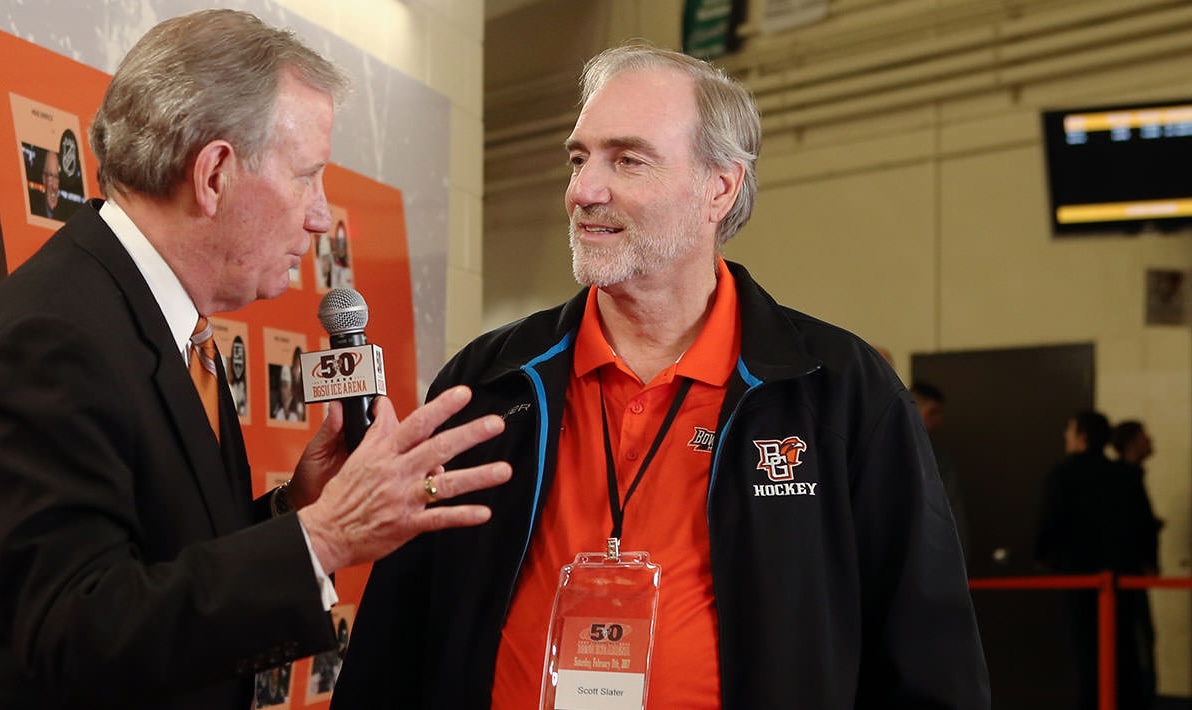Neurodivergent students face barriers trying to receive accommodations
BGSU Letters
March 15, 2023
Neurodivergent students at Bowling Green State University are facing significant barriers that prevent them from receiving accommodations from the university’s Office of Accessibility Services.
Neurodivergent college students, including those at BGSU, must jump through many hoops rooted in sexism, classism and ableism in order to be tested for and diagnosed with neurodevelopmental disorders. Then, those students must navigate the process of applying for and receiving approval for accommodations through the university’s Accessibility Services Office.
Neurodevelopmental disorders, which include ADHD and autism, are “multifaceted conditions characterized by impairments in cognition, communication, behavior and/or motor skills resulting from abnormal brain development,” according to the National Library of Medicine.
A person with a neurodevelopmental disorder can receive accommodations from educational institutions in order to have the same opportunities to succeed academically as students without neurodevelopmental disorders.
A reasonable accommodation, according to the Americans with Disabilities Act (ADA), is “a modification or adjustment to a job, the work environment or the way things are usually done during the hiring process.”
BGSU Accommodations Process
The barriers neurodivergent students face affect a growing number of BGSU students: The university’s Accessibility Services Office reported that 303 students received accommodations for ADHD and 67 students received accommodations for autism during the 2021-2022 academic year. The number of students receiving accommodations for ADHD and autism has increased by 23.5% from 249 students receiving accommodations for ADHD and 34 students receiving accommodations for autism during the 2014-2015 academic year.
While the number of students receiving accommodations at BGSU has increased, a number of neurodivergent students said they either faced issues in receiving accommodations or decided not to apply for accommodations for their disabilities from BGSU.
Per the official process set in place by BGSU, in order to receive accommodations from the Office of Accessibility Services, students must have an individualized education program (IEP), 504 plan or a written diagnosis of a disability provided by a licensed medical professional.
However, the process to obtain this documentation is inherently inequitable, leaving students without the tools they need to succeed academically, according to multiple experts in the field and neurodivergent students.
BGSU Accommodations Bias
One such inequity stems from gender differences, according to Grace Ranard, a third-year student with ADHD who has accommodations at BGSU.
Ranard said her family did not believe she had ADHD because her symptoms presented differently than her younger brother, who was also diagnosed with ADHD. Ranard said her ADHD manifests as inattentive, while her brother’s ADHD manifests as hyperactive, which is more common in the presentation of symptoms in males versus females.
“I started bringing up the idea of a diagnosis years before I was tested, and [my mom] didn’t take me seriously because my family only saw how my brother’s ADHD was and assumed that was the only way ADHD presented,” said Ranard.
Ranard’s experience is not unique.
According to the Centers for Disease Control and Prevention (CDC), the average age of diagnosis for ADHD is seven years old. But when it comes to females, the average diagnosis age for ADHD in females is the late 30s or early 40s, according to the American Psychological Association, due to a gender bias in ADHD research and diagnostic criteria.
Ranard experienced gender bias herself. She was denied when applying for accommodations for the ACT due to the fact that she was not diagnosed with ADHD before she turned twelve.
There is also gender bias in autism diagnostic criteria and research as well, experts say.
“With autism, there are four males for every single female that is diagnosed with autism,” said Molly Neubauer, a behavior reinforcement implementation coordinator at Elyria High School.
Adrian Vanderbeke, a second-year student at BGSU with autism and ADHD who has accommodations at BGSU, has experienced gender bias in her favor. Vanderbeke is a transwoman whose ADHD and autism presents according to her assigned sex at birth.
“The accommodations for males are way easier to get than females, unfortunately, because of the gender bias,” said Vanderbeke. “The process of getting diagnosed and receiving accommodations was relatively easy because of that.”
College students of all genders also experience financial barriers to being diagnosed with neurodevelopmental disorders. From the cost of doctor visits to insurance costs and testing costs, the financial burdens are another hoop neurodivergent students have to jump through.
Students who are diagnosed at a young age or via a school-sponsored professional do not experience many of the same financial barriers as college students who are attempting to be diagnosed for the first time.
Students like James Simmons, who transferred to BGSU this year, and Vanderbeke had accommodations from elementary to high school because they were either on an IEP, a written document created by a team to ensure a student’s academic success, or a 504 plan, which provides accommodations.
According to Neubauer, the difference between an IEP and a 504 plan is whether or not a student’s disability is affecting their performance in school. Because Ohio is an “educational need state,” in order to have an IEP, a student has to have a demonstrated need, based on academic or educational performance.
Students may also have slipped through the cracks without a diagnosis, as up until recently, school psychologists were responsible for providing services for up to 1,000 students, the recommended ratio by the National Association of School Psychologists (NASP).
Because Simmons and Vanderbeke had IEPs or a 504 plan, their accommodations were able to transfer smoothly into college. However, Ranard had to have her doctor fill out all of the forms BG’s Accessibility Services required, which took an entire year where she had to constantly prove to Accessibility Services that she is disabled.
Jess Oberski, a third-year student at BGSU and president of Disability Rights Education and Advocation and Mentorship (DREAM), said some students cannot afford the many doctor visits it takes to get diagnosed. Insurance does not cover testing for ADHD or autism in adults, so the thousands of dollars it costs to be tested must be paid out-of-pocket.
“Getting your doctor to fill out the application can be a barrier for some people because they can only afford two or three doctor visits a year and they save that for their yearly check-up,” Oberski said. “Insurance does not cover most of these kinds of visits, so if you don’t have the best insurance, you may have to pay out-of-pocket.”
Oberski said when a student makes a request for accommodations, the staff of the Accessibility Services Office it is either approved, denied or put up for review. Oberski said Accessibility Services gives the student a reason if it is put up for review, but might not give a reason if it is denied.
If a student’s accommodation is put up for review, it is usually because Accessibility Services needs more documentation or proof from the student’s doctor, which then means the student either must redo their application or make another doctor visit, which can add additional costs. If the student’s application is declined, the student will need to start again with the process from square one.
Accessibility Services
Neurodivergent students said they also face, ironically, ableist policies and language while trying to access accommodations.
Ranard, Oberski and Amanda Sharp, a therapist who works with college students who have gone through the accommodations process at BGSU, all stated that Accessibility Services requests that students provide personal and often uncomfortable information that is not medically necessary to approve accommodations.
Ranard, Oberski and Sharp each said that if a medical professional says accommodations are needed in order for a student to be academically successful, those accommodations should be approved without the student needing to constantly prove to the staff of Accessibility Services that they are “disabled enough” for accommodations.
Ranard experienced the difficulties of receiving accommodations through BGSU’s Accessibility Services Office first-hand.
“I had to constantly prove I’m disabled,” said Ranard. “Because of all the back and forth for being put up for review, it took an entire school year to get my accommodations. I was miserable, my grades suffered and I suffered.”
Oberski and Sharp said that the process demands students, like Ranard, who try to get accommodations must have thick skin and be knowledgeable about their own disabilities.
“Unfortunately, you cannot be sensitive about having a disability because of the rigor you have to go through to get your accommodations,” said Oberski. “You need to have thick skin because they dig so deep into what you’re going through without any empathy.”
Sharp said Accessibility Services often uses terminologies that are outdated or not the terminology a student’s doctor uses, which can be confusing and insensitive.
“I think Accessibility Services has a very specific list of things they do or do not have to accommodate, so sometimes a disabled student may not receive accommodations based on the terminology the doctor uses versus Accessibility Services,” Sharp said.
Despite these barriers, neurodivergent students are doing their best to adapt to life at BGSU.
Simmons did not apply for accommodations for ADHD, despite having the documentation to receive them, as he felt he no longer needed them due to the coping skills he had developed.
“What’s really helped me is taking notes, writing down everything a professor says and using my planner for everything,” said Simmons.
While the process for receiving accommodations itself may be overwhelming and difficult, the students who have received accommodations, including Ranard, Simmons and Vanderbeke, said it was worth it.
Representatives from BGSU’s Accessibility Services Office declined an interview on Nov. 1 via email, stating their “staff does not currently have the availability for an interview.”
If you are struggling, there is a neurodivergent support group that meets from 1:00 p.m. to 2:00 p.m. every Friday at the Counseling Center.












